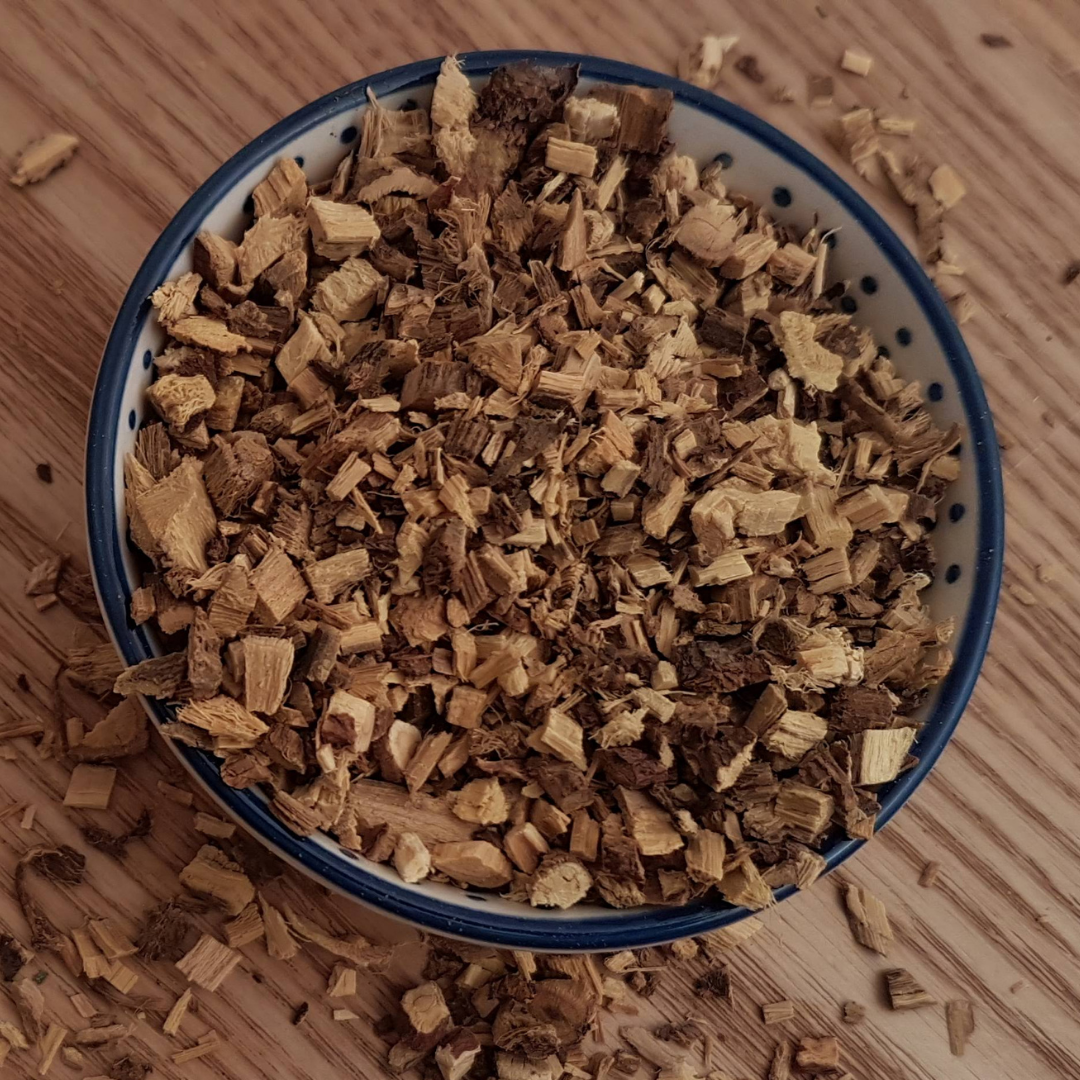
Licorice Root
Scientific Name: Glycyrrhiza glabra
Common Name: Licorice Root
Health Benefits:
Supports Digestive Health:
- Soothes the stomach lining and may aid in the treatment of ulcers, heartburn, and acid reflux.
- Acts as a mild laxative, promoting regular bowel movements.
Anti-Inflammatory Properties:
- Reduces inflammation in the respiratory and digestive systems, aiding in conditions like bronchitis and irritable bowel syndrome (IBS).
Immune System Support:
- Contains antiviral and antimicrobial properties that help the body fight infections, including respiratory illnesses.
Respiratory Health:
- Eases symptoms of coughs, colds, and sore throats by soothing the airways and reducing mucus production.
Stress Relief and Hormonal Balance:
- Acts as an adaptogen, helping the body cope with stress and regulate cortisol levels.
- May support adrenal gland function, improving energy and reducing fatigue.
Vitamins and Minerals:
- Calcium: Supports bone health and muscle function.
- Potassium: Maintains fluid balance and supports heart health.
- Magnesium: Aids in energy production and nerve signaling.
Active Compounds:
- Glycyrrhizin: The primary bioactive compound responsible for many of licorice root’s benefits, including its anti-inflammatory and immune-boosting effects.
- Flavonoids: Provide antioxidant and antimicrobial properties.
- Saponins: Contribute to licorice root’s soothing and anti-inflammatory effects.
Safety Information:
Glycyrrhizin Content:
- Excessive consumption of glycyrrhizin may lead to elevated blood pressure, low potassium levels, and water retention. Opt for deglycyrrhizinated licorice (DGL) for long-term use to avoid these effects.
Drug Interactions:
- May interact with diuretics, corticosteroids, and medications for high blood pressure.
- Consult a healthcare provider if taking these medications.
Usage Guidelines:
- Safe in moderate amounts as tea or a supplement.
- Avoid excessive intake or prolonged use without medical supervision.
Forms of Licorice Root:
- Raw Root: Used in teas and infusions.
- Powdered Licorice: Common in capsules or as an ingredient in herbal blends.
- Deglycyrrhizinated Licorice (DGL): A safer form for individuals concerned about blood pressure or long-term use.
Fun Fact:
Licorice root has been used in traditional medicine for over 3,000 years and was even found in the tomb of King Tutankhamun as part of his treasure trove.
Note:
This information is for educational purposes only and is not intended to replace medical advice. Always consult with a healthcare professional before using herbal products, especially if you are pregnant, nursing, or taking any medications.



